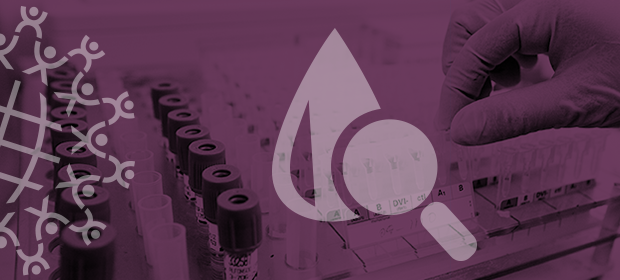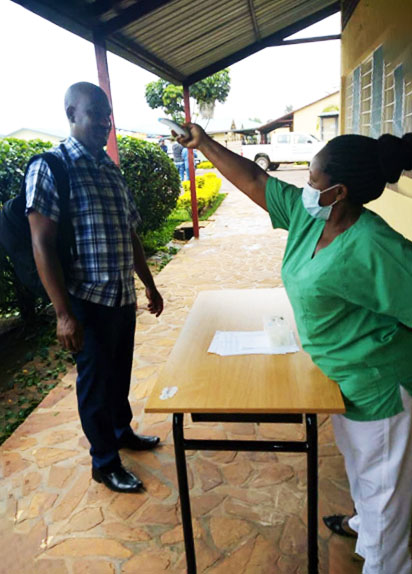Where We Work
See our interactive map


Rwanda uses its robust Ebola prep measures to respond to COVID-19.
Midwife Ester (pictured below, screening a client for COVID-19) is used to waking up every morning and going to work at the Rwamagana Provincial Hospital in Rwanda to care for mothers and babies there. But in the last few weeks, circumstances have changed her daily work routine. Now, she identifies and investigates suspected COVID-19 cases, conducting screenings for everyone who enters the hospital.
 “I’m not scared of COVID-19,” she says. “I am just happy I am contributing to saving lives.’’
“I’m not scared of COVID-19,” she says. “I am just happy I am contributing to saving lives.’’
Rwanda declared its first case of coronavirus on March 14, 2020, and over 100 health workers (and counting) are now organizing to prevent, detect, and respond to COVID-19, helping to identify and investigate suspected cases at health facilities. As of April 1, 2020, Rwanda had 75 confirmed cases of COVID-19.
But this is not Rwanda’s first time responding to a deadly communicable disease. The country shares one of the busiest border crossings in the world with the Democratic Republic of Congo (DRC), which announced on March 3 that it no longer had any cases of Ebola—an enormous milestone for the DRC, which had been tackling the second-deadliest outbreak of Ebola in history.
Now those strong health systems and planning skills are helping both countries respond to COVID-19. Rwanda and DRC already have disease response plans in place to help mitigate the spread of this new and highly infectious disease. In Rwanda, IntraHealth International’s office is, along with many other partners in the region, repurposing their Ebola-preparedness plan to help the government respond to COVID-19.
“Infection prevention and control compliance is a key element to high-quality service delivery,” says Alain Zimulinda, IntraHealth’s infection prevention and control specialist in Rwanda. “Yet gaps exist in parts of the health system. The support IntraHealth provides has been really helpful to Rwanda’s health system in general.”
When the Ebola outbreak was announced, the Rwandan Ministry of Health was looking to engage with partners in the health sector. “We were already implementing programs around the country, supporting 20 districts and 350 health facilities, so we reached out to USAID and obtained funding to use existing project platforms to support Ebola response and preparedness efforts in the country,” says Samson Radeny, country director for IntraHealth’s Rwanda office.
Responding to the spread of Ebola, IntraHealth implemented four different interventions in collaboration with the Ministry of Health, the Rwanda Biomedical Center, and other key stakeholders. Together we:
And Rwanda’s efforts worked. The country never saw a case of Ebola cross its border. IntraHealth’s infection prevention specialist was constantly coordinating with the Ministry of Health and other partners, as well as regularly attending Ebola preparedness meetings, communicating with IntraHealth staff all over the country, and reviewing policies and capacities of health facilities.
Health workers play a vital role in providing health services.
Now the Ministry of Health is screening people for COVID-19 at all points of entry, conducting mass media campaigns, preparing strategic plans and standards of practice, and mapping existing and available commodities in preparation for COVID-19.
“Health workers like Ester play a vital role in providing health services,” says Philippe Kayibanda, a nurse who works for IntraHealth’s Ingobyi project in Rwanda. “They devote their lives to caring for mothers and children, giving lifesaving immunizations and health advice, looking after older people, and generally meeting everyday essential health needs. They are often the first and only point of care in their communities.”
Get the latest updates from the blog and eNews




